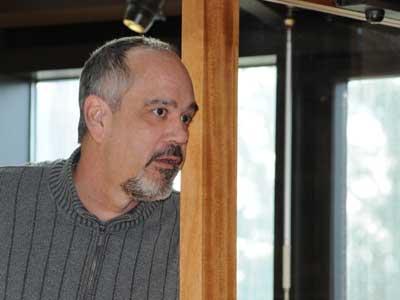Two Seats Too Close to Call
Two Seats Too Close to Call
The composition of the East Hampton Town Trustees will remain largely unchanged following Tuesday’s vote. Unofficial results indicate that all seven of the incumbent trustees were re-elected. With absentee ballots yet to be counted, however, the winners of the final two positions on the nine-member board are yet to be determined.
Diane McNally, the trustees’ clerk, was easily re-elected, with an unofficial tally of 3,131 votes. Stephanie Forsberg won 3,490 votes, Stephen Lester received 3,431 votes, and Timothy Bock, 3,045 votes. Nathaniel Miller won 2,965 votes, Sean McCaffrey received 2,836 votes, and 2,669 voters cast ballots for Deborah Klughers.
All but Mr. Lester and Ms. Klughers ran on the Republican, Conservative, and Independence tickets. Mr. Lester ran with backing from the Democratic and Independence Parties, and Ms. Klughers ran on the Democratic and Working Families tickets.
As for the remaining two seats, yesterday, pending a count of absentee ballots, the unofficial count had Brian Byrnes, on the Democratic and Independence ticket, winning 2,492 votes, and Dennis Curles, running with Republican, Conservative, and Independence Party backing, with 2,438. Brian Pardini, also with the Republican, Conservative, and Independence Party backing, was just 7 votes behind Mr. Curles, with 2,431 votes. Afton DiSunno, a Democrat, was within striking distance with 2,360 votes.
Yesterday, Ms. McNally expressed relief at Tuesday’s outcome and called the result an affirmation of her colleagues’ efforts. As the present term concludes and with the town still addressing Hurricane Sandy’s aftermath, “what we’ve been doing to reaffirm trustee policies, although it caused a little angst to people, once they understood what was going on they supported us across the board.”
Ms. McNally referred to the trustees’ assertion of their jurisdiction over the bottomlands of town waterways, and their move last spring to condense the 90 moorings set aside for large boats within an area of Three Mile Harbor, which angered some boat owners.
“As an incumbent, you’re seeking confirmation that what you’ve done for your community is right. We’re all pleased and honored that we are adequately representing the people that voted for us,” she said.
As the clerk, Ms. McNally holds a full-time position on the board and is effectively the face of the body, which has overseen the town’s common lands since the Dongan Patent of 1686 granted it that authority. “Being in that position,” she said of her role, “it’s great to represent my colleagues in a way that hasn’t cost them their position in the town.”
The state of the town’s shorelines, Ms. McNally said, will remain an important issue on which trustees will assert their jurisdiction. The body has sought to prevent, with limited success, rock revetments from being constructed on beaches, and often clashes with beachfront property owners who erect fencing and other erosion-control structures. “I’m very interested to see how the new town board handles that,” she said.

